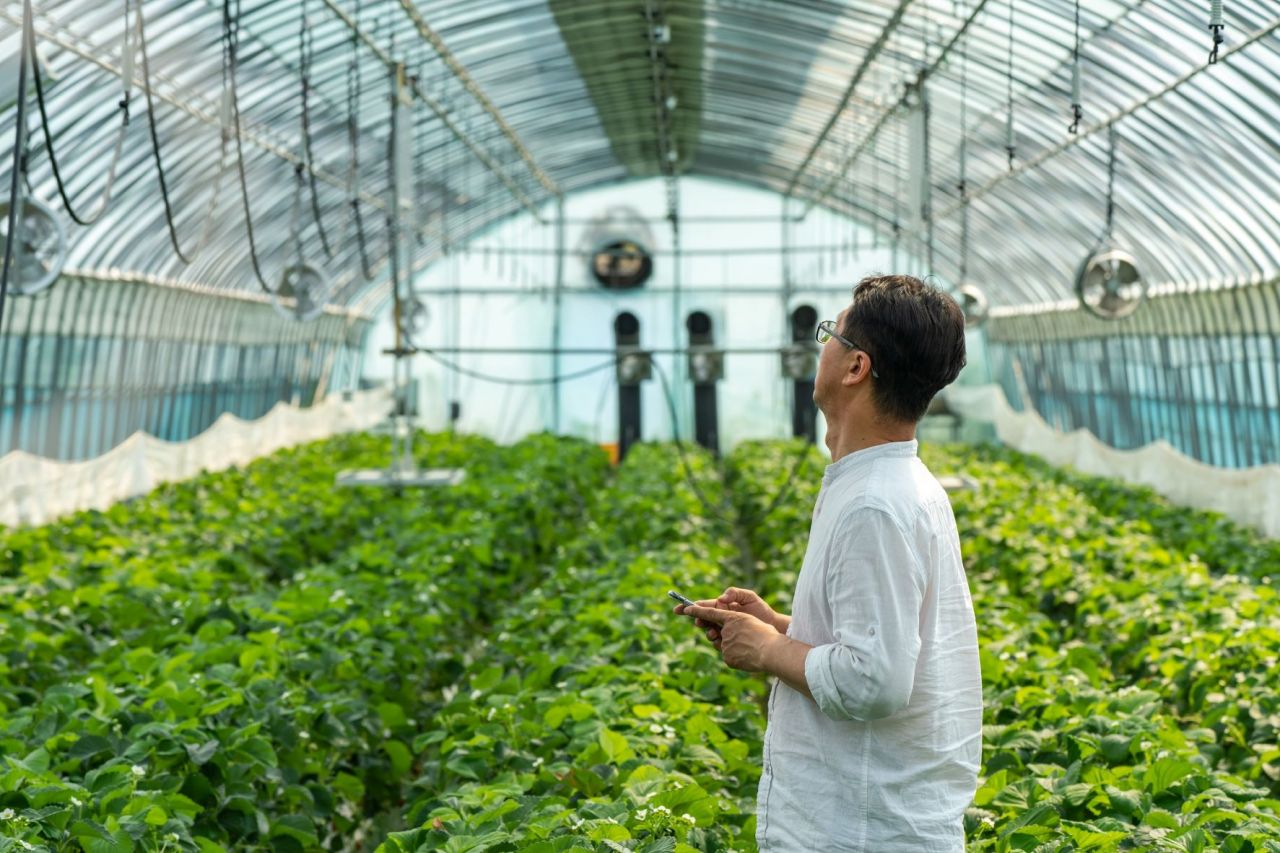 |
Lee Kyung-ju checks the temperature of his cucumber green house in Cheonan, South Chungcheong Province. (Lee Kyung-ju) |
Becoming a farmer carries a high risk, with volatile weather and soil conditions affecting farm crops in a blink.
The risk, exacerbated by global warming, has been mitigated for Lee Kyung-ju, a former IT office worker-turned farmer who has been growing cucumbers with the help of a smart farm system since 2020.
He kicks off his day by checking his smartphone application showing the farming weather forecast and agricultural commodity prices.
He then arrives at his 6,000 square-meter farm in Cheonan, South Chungcheong Province.
Using smart farming software and hardware, Lee controls temperature, light quantity and humidity of the greenhouse for the cucumbers to ensure they have an even dark green color and uniform size.
A dynamic monitoring system also calculates energy efficiency, costs and growth rates of the crops.
“Through the smart farm system, cucumbers’ preferred environment can be adjusted allowing the plants to make their own hormones and enhance the natural taste,” he said.
Empowering the farmer with six years of agricultural experience is the technological capability he adopted from agtech startup Green Labs in 2020.
Smart farming is emerging as an effective alternative here to respond to natural disasters caused by climate change and manpower shortage in the farming sector due to the low birth rate and aging population.
“Our ultimate goal is to make future agriculture a category of business with low entry barriers and high return by enhancing predictability in farming,” said Shin Sang-hoon, co-founder and CEO of Green Labs, which was founded in 2017.
Agriculture is a big industry, with its market size exceeding 150 trillion won ($125.1 billion) just for the country, but attempts at digital transformation in the sector have been fragmented or focused on the delivery industry, as seen in the birth of unicorn startups like Market Kurly and Baedal Minjok.
“I don’t think there was a company that sought to digitalize the entire life cycle of agricultural production and distribution comprehensively,” he said.
Green Labs’ mobile application Farm Morning has attracted 500,000 users, about one-quarter of the 2 million farmers in the country.
Shin, who previously worked for e-book service provider Ridibooks and founded blind dating mobile app Amanda, said his new company’s business strategy not so different from those of the IT companies he worked for.
“It is a game of who attracts more users. The basic structure is that we provide necessary solutions to users using accumulated data from users,” he said.
For instance, its vision recognition system monitors the growth of strawberries to analyze environmental data that increase the yield and quality of the crop. The data collected from multiple farmers advances its system engine to offer better solutions for other strawberry farmers.
This also reduces farmers’ workload to check on the growth of their livestock and crops and increases the accuracy of the process, Shin said.
“In the near future, farmers will be able to switch crops, like from strawberries until this month to watermelons next month, by adjusting their smart farm systems,” he said.
By Park Han-na (
hnpark@heraldcorp.com)








![[Today’s K-pop] Blackpink’s Jennie, Lisa invited to Coachella as solo acts](http://res.heraldm.com/phpwas/restmb_idxmake.php?idx=644&simg=/content/image/2024/11/21/20241121050099_0.jpg)